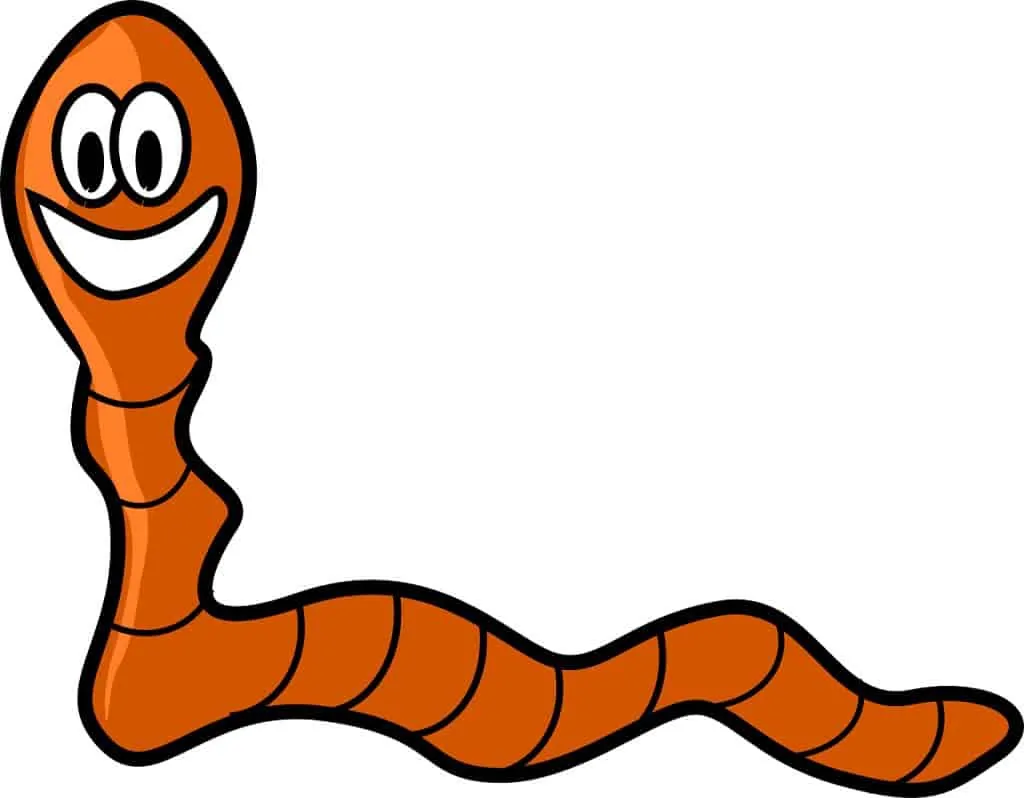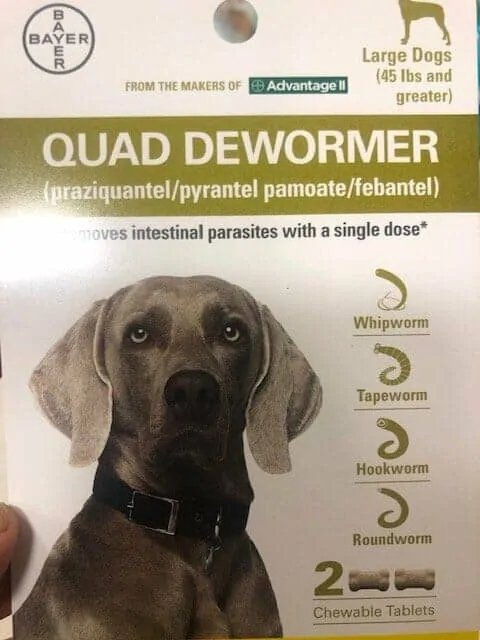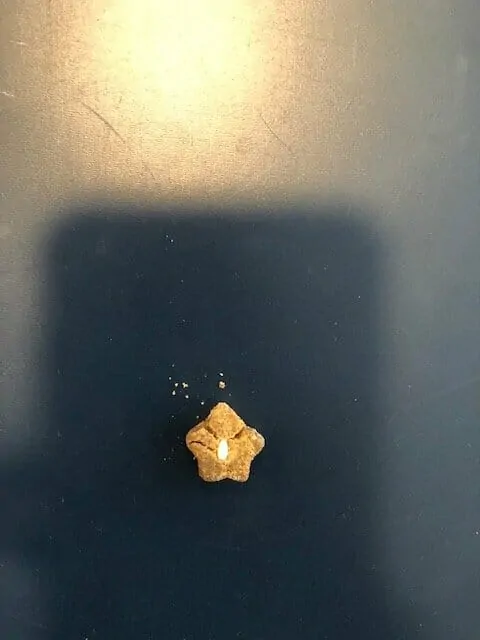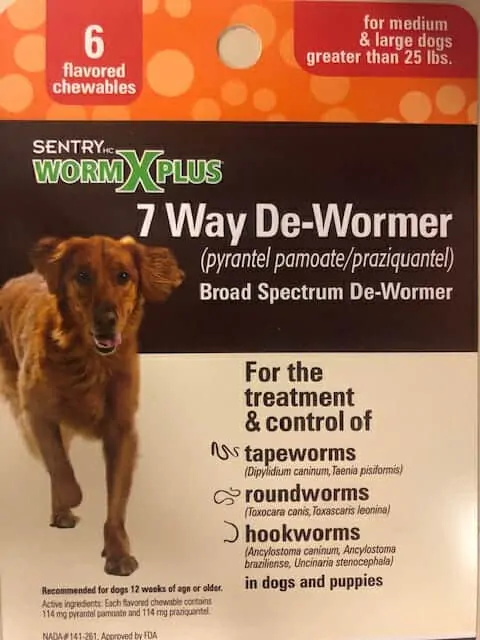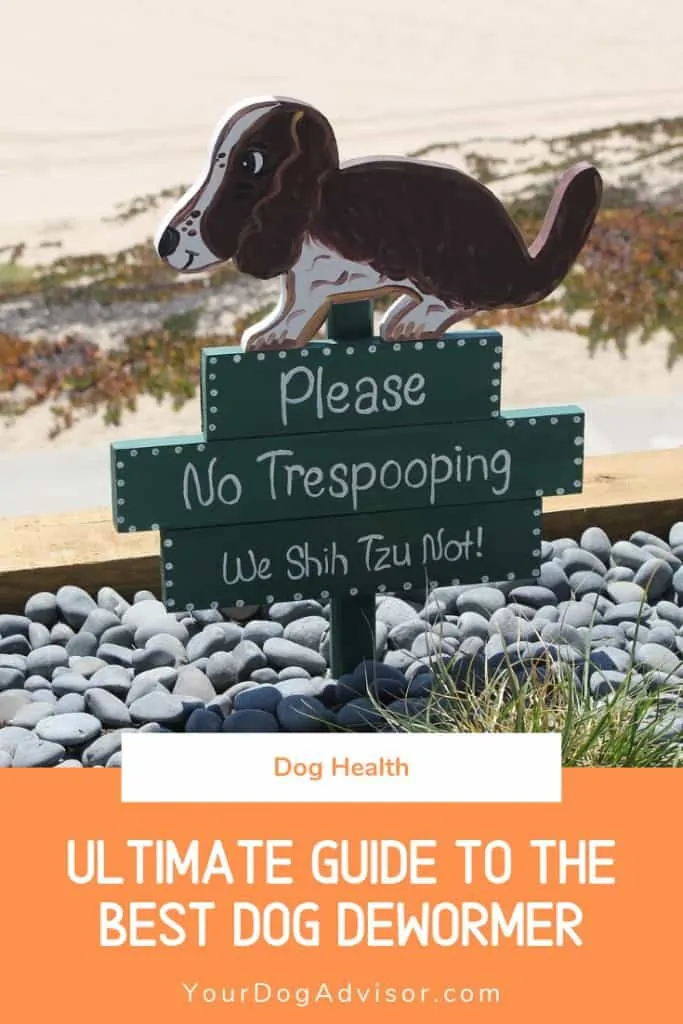We all love our dogs, but if there’s one thing that freaks out most dog owners – it is worms. Finding worms on your dog or in their feces can be stressful for any pet owner. When it comes to treatment, there seems like there are millions of choices for deworming options. None of the deworming options even compare to the discomfort and repercussions that can be incurred due to intestinal worms in your pet.
Contents
What Are Worms?
These worms in your dog aren’t quite the same as the earthworms we see around in the ground.
Worms, or intestinal parasites, can infect our lovely dogs. These intestinal parasites come in many different sub-specie types, including but not limited to: roundworms, hookworms, whipworms, and tapeworms. While it is possible that some puppies can be born with worms, most dogs contract intestinal worms by eating contaminated stool, dirt, or through carrier rodents. Worms can lay dormant for many years in dogs. During pregnancy, they can be made active, which can therefore be transferred to the unborn puppies through the mother.
Four Most Common Types of Intestinal Parasites
1. Roundworms
Roundworms are one of the most common worms found in dogs’ intestines. Otherwise known as ascarids, they are long, white and thin. They live off of the dog’s intestinal tract and feed on the dog itself, as they are a type of parasite. When the roundworms are swallowed by your dog, they spread to your dog’s liver and up through its windpipe, which your dog may cough up and swallow once again, repeating the cycle and allowing the larvae to mature and plant additional eggs into the intestinal tract of the dog.
2. Hookworms
Hookworms are one of the more dangerous kinds of worms. In the small intestine, they suck blood from the lining of the villi. As such, when their numbers multiply and the larvae mature, they can cause inflammation in the intestines and severe anemia. Most often, these worms are contracted through a dog’s mother’s milk, water, or penetration through the skin.
3. Whipworms
Whipworms live in a dog’s cecum. The cecum is a J-shaped pouch attached to the end of the small intestine after the ileocecal tract, which leads into the large intestine. It is approximately located in the lower left hand corner of the dog’s stomach. Normally found in soil, they are one of the harder kinds of intestinal parasites to treat as they can result in no symptoms in mild cases, but lead to fatal complications later on.
4. Tapeworms
Tapeworms are usually ingested by dogs when they ingest other creatures that carry their eggs, such as flies. Their eggs usually only develop in the dog’s intestines, from where they can cause damage to your dog’s gastrointestinal tract. However, tapeworms are one of the less severe and seriously infectious forms of worms. In many cases, they may not even cause your dog any harm, save for a little bit of weight loss if severe accumulation of tapeworms occur.
Symptoms, Diagnosis and Guidelines for Treatment
In many cases, the symptoms are very clear to pet owners, and many dog owners may notice that something is wrong with their beloved pet before a veteranarian’s check up appointment does. Symptoms of intestinal parasitic infections include a bloated belly, incessant scratching of the anal area, increased appetite, weight and or hair loss, and changes in their stool. In most cases, the easiest way to determine the presence of a parasite is to observe your dog’s feces. There may be visible worms in their feces, confirming the infection. Other changes in their feces can include bloody stools, bloody diarrhea, and an unusual amount of mucus.
If you are not sure if your dog has worms in their stool, take a sample from the backyard to your veterinarian.
However, in some cases, while your dog may show these symptoms, it is possible that your dog remain symptomless, and that the worms are not visible to the naked eye. The only surefire way to conclusively determine your pet’s health in terms of worm infestations is to take a sample of a fresh defecation from your dog to your vet in a baggie. Store it in a cold environment, such as your fridge, if necessary. Your veterinarian will take a look at the stool sample underneath a microscope to thoroughly examine your dog’s health indicators and search for the presence of worm segments.
Preventing Worms from Occurring?
Be aware when your dog interacts with other dogs or their stool samples. They can prove dangerous for your dog.
Since a majority of worms occur from ingestion, be sure to keep your dog away from his stool and stool of other dogs. It is not always easy to tell whether a dog is infected with worms, but it is always better to be safe rather than sorry. When small fragments of worms break off, so do unhatched eggs.
When a curious dog goes to sniff and approach the stool, the worms and eggs in the stool may be unknowingly ingested. To avoid this, it is always a good idea to keep your yard and other places your dog may frequent clear of stool. When it is time for a visit to the local veterinarian’s office, have them conduct a thorough stool sample search, not just an anal exam, as some parasites are not immediately visible or noticeable.
Also, since worms can also be contracted by ingesting other animals or through skin contact, always check your dog for fleas and have a flea collar or treatment handy. Bathe your dog regularly to keep their fur clear of nasty insects, and be aware of what animals your dog is trying to chase, eat, or capture, as it is possible that the animals can do more harm to your dog than your dog to the animals.
Best Dewormers
1. Bayer Dewormer
This dewormer comes in a chewable form of tablets with minimal dosages that vary depending on the size and weight of your dog.
The Bayer dewormer product is well established on the market. Known for its reliability and overall cost-effective products, the Bayer product line is a smart buy for any dog owner. Each package of Bayer dewormer lasts for 1.5 years at a time. It works well on whipworms, tapeworms, heartworms, and roundworms. The active ingredient Febantel boosts the effects of the active ingredient Pyrantel and Praziquantel and kills whipworms and hookworms. Praziquantel works on all four kinds of common worms. On the other hand, Pyrantel Pamoate kills roundworms. While some pet owners have seen vomiting after the dosage, the product does work regardless in spite of the side effects.
No products found.
It also helps reduce the bloating in your dog’s stomach. There are different sized tablets and depending on the size of your dog. With the exception of the large dog sized medication, the small and medium sizes have four tablets each, versus the two tablets. Especially since the tablets are chewable, a lot of dog owners find it is easier for them to feed them the medications. The beef flavor in the medication helps as well. As long as your dog is over four weeks old, this dewormer is one of the best options available.
2. Healex Dewormer
To help your dog ingest the tablet, it may be a good idea to hide it in a treat that your dog is sure to enjoy!
The Healex dewormer is created by veterinarians for dogs for maximum comfort and maximum eradication. The dewormer takes upto twenty four hours to begin working. One of the unique portions of this dewormer is that while it treats all four common types of worms, it also works well on nematodes, a fifth kind of common parasite. Depending on your dog’s weight and size, the Healex dewormer has different amounts of serving sizes. The tablets are sized small on purpose so that all of the tablets can be ground down into food or treats quickly.
No products found.
For dog owners, like myself, who are looking for an established, safe brand, Healex is a top choice. Not only does Healex produce products for dogs, but they have ranges of studies and medications from various breeds and animals, including goats, cats, and horses. Each pill contains 68.0 milligrams of praziquantel, 68.0 milligrams of pyrantel pamoate, and 340.2 milligrams of febantel.
3. Safe Guard Dewormer
The Safe Guard Dewormer is a great economical option for dog owners with dogs above the age of six weeks old. Febendazole is the unique ingredient that this brand uses. Since the therapeutic index for the ingredient is 100, the dose is 1/100 of the doses necessary to reach a level of toxicity. This chemical isn’t absorbed throughout the bloodstream or rest of the body except for the intestines, where intestinal parasites reside.
No products found.
This dewormer recommends one dry dose in moist food for three consecutive days. The dosage is on the lower side, Therefore, it is recommended that if you had a larger dog, specifically above the threshold 40 pounds, that you purchase additional packets or increase the dosage with advice from your veterinarian if necessary.
While these tablets are not heartworm preventative, they do have a record of eradicating heartworm larvae quite well in all dog breeds. A positive benefit of the Safe Guard Dewormer is that it is meant to be perfectly safe for pregnant dogs as well. Most other dewormers are not safe for young dogs, and dogs who are pregnant.
4. The Sentry Dewormer
The Sentry dewormer treats all major kinds of tapeworms, roundworms, and hookworms. The tablets are on the bigger side, and are approximately the size of a nickel. While this dewormer treatment has a flavoring, it is still bitter for dogs to taste. Each chewable tablet can be taken once every four weeks until no evidence of worms are left. However, due to a missing active ingredient, this product is not effective on whipworms.
No products found.
5. Triple Dewormer
The Triple Medium and Large Dog Wormer works extremely well on all types of worms except for whipworms. The Durvet brand that created this dewormer has procured it specifically intended for older dogs over the age of 12 weeks old. Because they are made for older and larger dogs, it is a great option for dogs who don’t fit under the correct dosage for other, less effective medication options. This triple action dewormer is proven to clinically kill two species of tapeworms, two species of roundworms, and three species of hookworms. Most dog owners who have tried this product predict an average of two dosages to completely eradicate the worms from your dog’s intestinal tract.
No products found.
If you would still like this product for a smaller dog size, there are different packages of the dewormer available for all sizes of dogs. If you, like myself, are the owner of a picky eater dog, then you will also appreciate the Durvet Triple Dewormer, as it is made to taste good and be easily hidden in a treat or other food, so that the dog will not refuse the medication. For convenience sake, these tablets are also chewable, and can be administered without food as well.
However, since each pack contains 12 dosages, they do retail for a slightly more expensive price than some of the other products listed on this list.

Jen Jones is a professional dog trainer and behavior specialist with more than 25 years of experience. As the founder of ‘Your Dog Advisor’ and the ‘Canine Connection’ rehabilitation center, she applies a holistic, empathetic approach, aiming to address root causes rather than merely treating symptoms.
Well known for her intuitive and compassionate approach, Jen adopts scientifically-proven, reward-based methods, encouraging positive reinforcement over punishment. Jen specializes in obedience training, behavior modification, and puppy socialization. Her innovative methods, particularly in addressing anxiety and aggression issues, have been widely recognized. Jen has worked with many of the world’s leading dog behaviorists and in her free time volunteers with local animal shelters and rescue groups.
